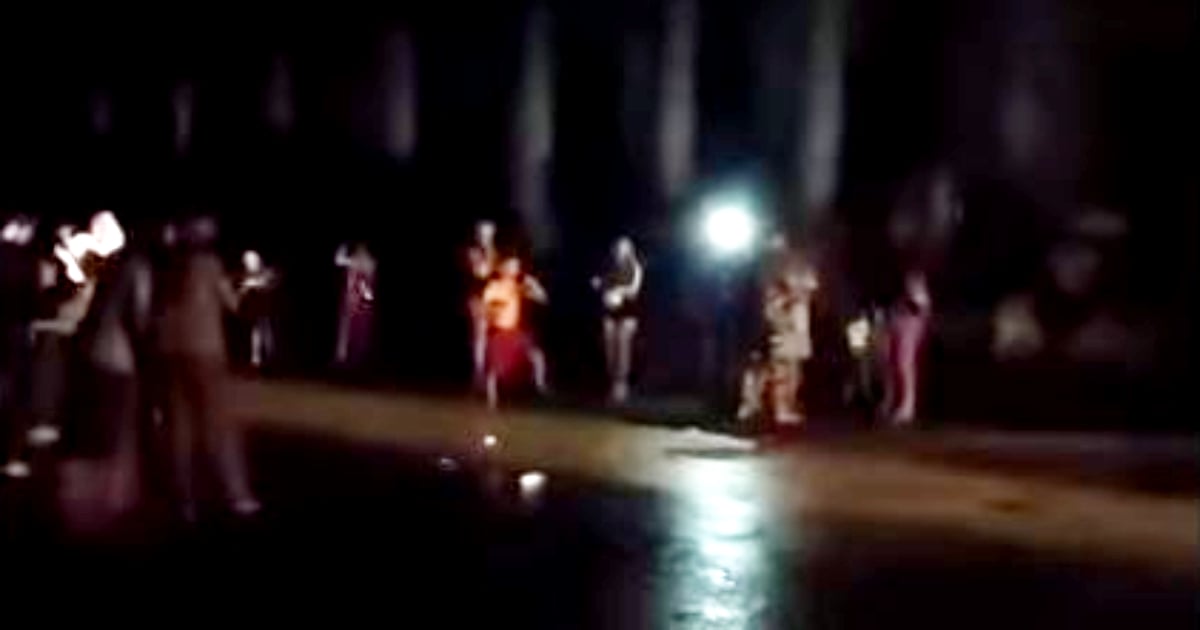The Cuban Prosecutor's Office has disclosed that legal actions have been launched in the provinces of Havana, Mayabeque, and Ciego de Ávila against individuals who took part in protests over the persistent blackouts plaguing the nation. This announcement comes amid an escalating energy crisis exacerbated by the recent aftermath of Hurricane Rafael, which left large swaths of the country without power following continuous failures in the national electric grid.
According to the prosecutor's statement, charges have been filed against protesters for assault, public disorder, and damage, with provisional detention as the precautionary measure. The regime's repressive apparatus emphasized that the incidents involved attacks on authorities and inspectors, resulting in injuries and public order disturbances. However, recent protest footage circulating on social media shows demonstrators behaving peacefully, largely engaging in shouting and banging pots and pans, without signs of violence.
Government Response to Civil Unrest
Hurricane Rafael, which battered the island with winds reaching 116 miles per hour and torrential downpours of 7.7 inches, caused the National Electric System to collapse for three consecutive days. Although the grid was reconnected after nearly 48 hours, power outages persist in many areas. In Havana, only half of the nearly two million residents currently have electricity, and throughout the rest of the country, outages continue due to the chronic inability of the grid to produce enough electricity to meet the demand.
The Cuban government's response to the protests has been far from conciliatory. Ruler Miguel Díaz-Canel previously claimed that protesters were acting under the "guidance of counter-revolutionary operators from abroad." He stated, "There is full readiness, capability, and deployment of our defense systems, organizations, the party, the government, and administrations to address any concerns of the population, provided it is done in a civilized, organized, and disciplined manner." He further asserted, "We will not accept nor allow anyone to provoke vandalism or disturb the peace of our citizens, and that is a conviction and principle of our revolution."
Reports of Arrests and Repression
Human rights organizations like Cubalex, based in the United States, have reported at least eight arbitrary arrests in Encrucijada, Villa Clara, related to blackout protests. Additionally, the NGO Justicia 11J noted at least three protests in Havana on Friday night, marking the second consecutive night of demonstrations in the capital. These protests, characterized by pot-banging and peaceful marches, highlight widespread dissatisfaction among the population facing blackouts and daily hardships.
The prosecutor's office stressed the importance of maintaining order, discipline, and respect for authority, reminding citizens of the need to adhere to "socialist legality." However, the repression and arrests have sparked new concerns about human rights in Cuba, a nation under a totalitarian communist regime that suppresses those who criticize or denounce its human rights violations and lack of civic and political freedoms, such as freedom of expression and assembly.
Impact on Daily Life and Community Response
The energy crisis, worsened by the failure of the electric grid to generate necessary power, has forced Cubans to endure long periods without electricity, affecting everything from food storage to access to basic services. Despite the regime's propagandistic claims of recovery, Cubans continue to face long hours of darkness and uncertainty, fueling social unrest.
The arrests in Encrucijada have stirred frustration among the relatives and neighbors of those detained, who defend their right to protest against a situation they deem untenable. This tense atmosphere underscores the challenges Cuba faces, not only economically and infrastructurally but also in terms of civil rights and public freedoms.
The prosecutor's words, highlighting the "proper observance of social coexistence norms," contrast starkly with the criticism from the international community and Cuban civil society, who call for a more empathetic and respectful response to citizens' rights. "The only thing contrasting with this determination of unity among our people, with these efforts to overcome adversities together, are some individuals, a minority, mostly intoxicated, behaving indecently," Díaz-Canel remarked at the end of October before the National Defense Council.
The regime's strategy to discredit those who protest and demand their rights and freedoms is clear, aiming to warn that they "are not part of the Cuban people" (divide) and to make it clear that the so-called "revolution" will not hesitate to repress their actions (intimidate). The prosecutor's statement this Saturday confirms that the repressive bodies involved in this strategy are already at work.
